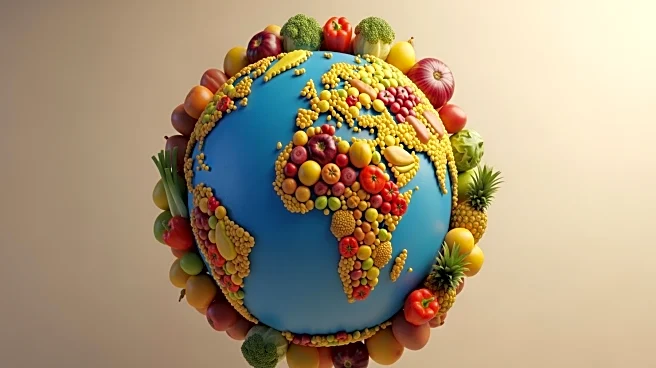What's Happening?
The World Food Program (WFP) has reported that food supplies to Gaza are significantly below the required levels to meet the needs of the population. Antoine Renard, the representative and country director
of the WFP in Palestine, highlighted the challenges faced by the organization in addressing the food scarcity in the region. Despite efforts to provide aid, the resources available are insufficient compared to the demands on the ground. This situation underscores the ongoing humanitarian crisis in Gaza, where access to essential supplies remains a critical issue.
Why It's Important?
The shortfall in food supplies to Gaza has significant implications for the region's stability and the well-being of its residents. The inability to meet basic nutritional needs can exacerbate existing health issues and contribute to social unrest. For the international community, this highlights the urgent need for increased support and intervention to address the humanitarian needs in Gaza. The situation also reflects broader geopolitical tensions in the region, which can impact international relations and policy decisions. Stakeholders, including governments and non-governmental organizations, must consider the long-term consequences of inadequate aid and work towards sustainable solutions.
What's Next?
Efforts to increase food supplies to Gaza are likely to continue, with the WFP and other humanitarian organizations seeking additional resources and support from the international community. The situation may prompt discussions among global leaders on how to effectively address the humanitarian needs in conflict-affected areas. Potential responses could include increased funding, logistical support, and diplomatic efforts to ensure safe and efficient delivery of aid. Monitoring the situation will be crucial to adapting strategies and ensuring that aid reaches those in need.










